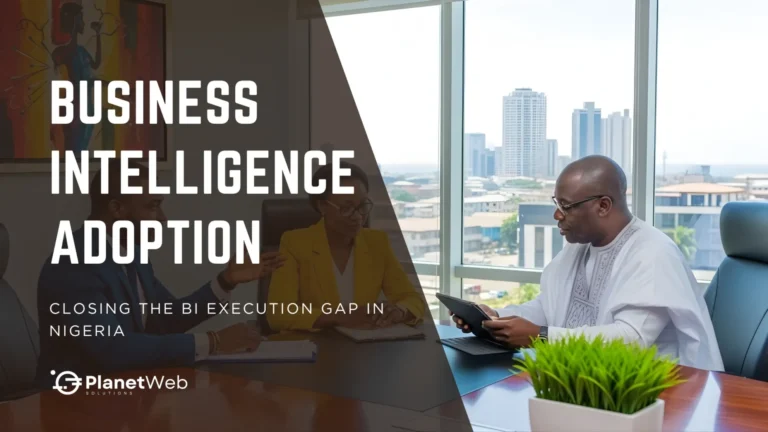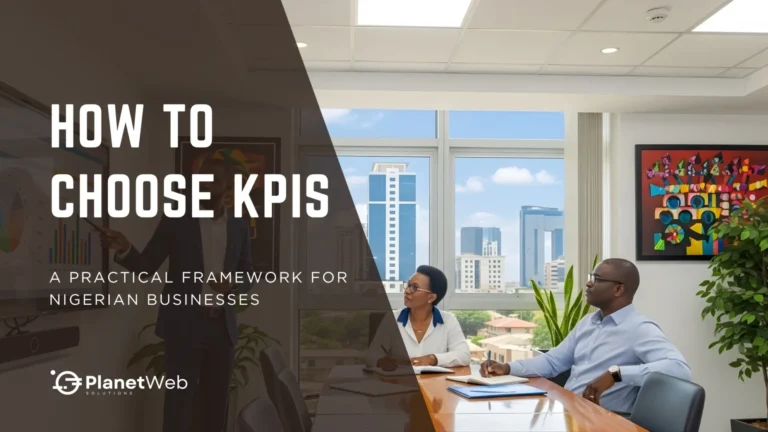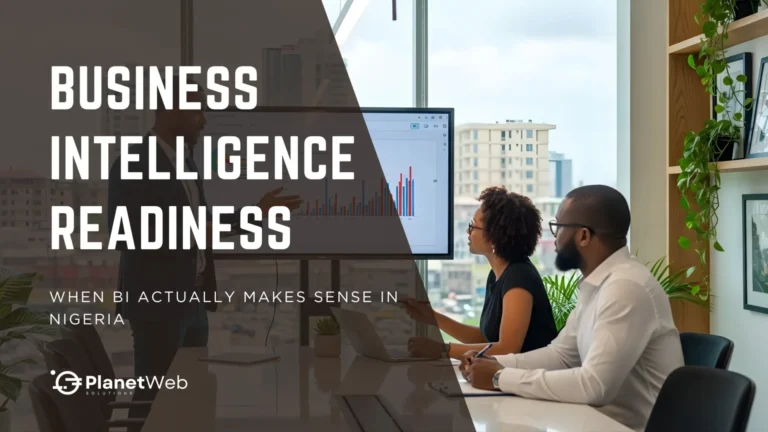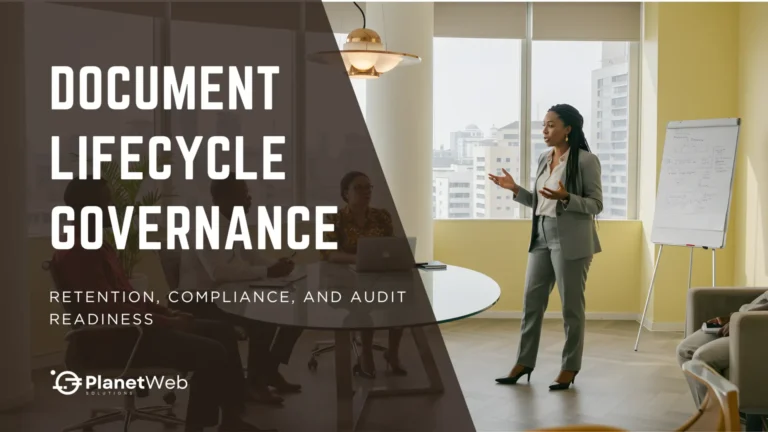The GMV Trap: Why Your Fintech Business Model in Nigeria Isn’t Working
💸 The Illusion of Growth
What if processing billions of Naira in transactions actually makes your startup poorer?
That’s the paradox at the heart of Nigeria’s fintech story. For years, founders have waved around headlines like “₦100 billion processed in 12 months” as proof of success. Gross Merchandise Value (GMV) has been the go-to metric in pitch decks, celebrated in funding announcements, and amplified in the media.
But here’s the harsh reality: GMV doesn’t equal profitability. In fact, chasing GMV as your North Star metric is one of the fastest ways for a fintech business model in Nigeria to collapse under its own weight.
It’s a classic misstep we explored in our 7 Startup Mistakes in Nigeria You Should Avoid in 2025 & Beyond guide—treating vanity metrics like GMV as proof of business viability rather than what they are: illusions of scale without substance.
🎯 What is GMV and Why Founders Love It
Gross Merchandise Value (GMV) is the total value of transactions processed through your platform. Think of it as the full amount of money that flows through your pipes before you take your small cut.
Investors once loved GMV because it looked like scale. A company processing ₦50 billion annually signaled traction, market adoption, and the promise of massive revenues. In the days of cheap capital, GMV-heavy startups could raise big rounds on the back of “billions processed.”
But GMV is a vanity metric. It measures activity, not profitability. The funding correction of the past two years has made that painfully obvious.
⚠️ Why the GMV-Based Business Model Fails in Nigeria
Let’s break it down.
Imagine your fintech processes ₦1 billion in monthly transactions at a 1.5% fee. On paper, you’ve earned ₦15 million in revenue. Not bad, right?
Here’s where the money disappears:
- Interchange fees (banks & card networks): 40–60% of your revenue is gone before you blink.
- Fraud and chargebacks: High in Nigeria, these can swallow 5–15%.
- KYC and compliance costs: NDPA requirements, BVN/NIN verifications, and CBN reporting all eat into margins.
- Infrastructure costs: Reliable servers, cybersecurity, and skilled engineering talent are expensive, often billed in dollars, while your revenue is in naira.
- Customer acquisition: Merchant onboarding and incentives take another cut.
By the time you’re done, that ₦15 million shrinks to maybe ₦3–5 million. And that’s before paying salaries, office rent, marketing, and product development.
💡 Relying on GMV-based fees is like trying to fill a swimming pool with a leaking hose. No matter how much water you pour in, the leaks (costs) keep it from ever filling up.
🇳🇬 Nigeria’s Fintech Reality: Margins Under Pressure
This math is bleak anywhere, but in Nigeria, the pressures are intensified by unique market forces. The funding data tells the story. In 2024, Nigerian fintech funding fell by 17.1%, while the number of funded ventures dropped by a staggering 68.5% (see lessons from 2024’s closures). By 2025, investors are increasingly rewarding startups that show real paths to profitability, not just vanity metrics.
Some case studies illustrate how Nigerian fintechs are adapting their business models beyond GMV:
- Moniepoint’s High-Volume Dilemma: Even after raising $50 million in 2023, Moniepoint remains entrenched in the agent banking model built on razor-thin transaction margins. Its edge comes from operational scale and distribution, but the economic fragility of fee-based transactions hasn’t gone away.
- Paystack and Flutterwave’s Escape Route: Both built huge GMV in Nigeria, but quickly expanded into other markets (South Africa, Kenya, Ghana, U.S.). Why? Because Nigeria’s capped fees and high costs meant GMV alone couldn’t sustain their growth.
- The Banks’ Advantage: Nigerian banks can treat payments as a loss-leader. They generate significant revenue from lending, FX, and treasury operations. Startups that live or die by transaction fees don’t have that safety net.
And to make matters worse, fintechs must share their tiny slice with Visa, Mastercard, and issuing banks. By the time everyone takes their cut, the fintech’s share often can’t cover much more than survival.
For more context, see TechCabal’s Fintech coverage and the African Tech Startups Funding Report.
📉 Why GMV Doesn’t Scale in Nigeria
Several structural realities make this business model unsustainable in Nigeria:
- Price-sensitive customers: Merchants won’t tolerate high fees; they’ll migrate to the cheapest option.
- CBN regulatory ceilings: Caps on transaction charges leave little room to increase margins.
- Fraud risks: Nigeria has one of the highest fraud rates in global fintech, and reversals eat directly into revenue.
- Infrastructure costs: Payments demand uptime, security, and engineering talent. These costs don’t shrink, even if margins do.
- The 2025 funding winter: Investors are pushing for profitability over “growth at all costs.” GMV-only fintechs are finding it harder to raise money.
🚀 Building a Profitable Fintech Business Model in Nigeria
The most successful Nigerian fintechs of 2025 aren’t chasing GMV for its own sake; they’re using it as a base to build higher-margin businesses.
Here are the models gaining traction:
- Lending & Credit Scoring – FairMoney, Carbon, and Moniepoint Capital have shown that using transaction data to underwrite loans unlocks far higher margins than fees.
- Embedded Finance – Paystack’s integration with Bolt creates sticky, value-added partnerships beyond payment rails.
- SaaS Subscriptions for SMEs – Cleva (formerly Sudo by Piggyvest) charges for business banking and back-office tools layered on top of payments.
- Cross-Border FX & Remittances – Chipper Cash thrives by solving currency conversion and international settlement, a service people will pay a premium for.
- Data & Risk APIs – Okra and Mono monetize compliance, KYC, and fraud prevention tools, selling infrastructure to others in the ecosystem.
The pattern is clear: payments are the Trojan horse, not the endgame. The real money is in the services layered on top.
🧠 When the GMV Model Might Work
While GMV is a dangerous trap for most fintechs, it isn’t always a dead end.
There are rare scenarios where a GMV-based business model can succeed, but only if you:
- Control a niche channel with limited competition, strong merchant lock-in, or regulatory advantage
- Operate behind the scenes as infrastructure for others (like settlement APIs, card rails, or banking-as-a-service platforms)
In these cases, the volume isn’t the revenue — it’s the leverage. You gain control over the stack, allowing you to layer high-margin services on top. But these are exceptions, not the rule.
🧭 If you’re not the channel owner or infrastructure layer, you’re likely playing a losing game.
📊 Beyond Vanity Metrics: Building Real Businesses
Africa’s ecosystem has entered a new era. H1 2025 alone saw significant investment in fintech. Meanwhile, Nigeria processed ₦600 trillion in e-payments in 2023 — proof of the sheer scale of the opportunity, but also the thin margins fintechs face. But unlike the boom years of 2021–22, today’s capital is flowing into fintechs with proven paths to profitability, not just flashy GMV slides.
For founders, this means asking tougher questions—like those we raised in 5 Make-or-Break Nigerian Startup Questions—that help clarify not just product-market fit, but also business model durability:
- What recurring revenue can we build beyond transactions?
- Which higher-margin services make us indispensable?
- Are we building pipes — or infrastructure that others depend on?
The GMV race is over. The correction has made sure of that. Now it’s about building real businesses with durable revenue streams.
Related reads: Failed Nigerian Startups: Why They Collapsed & Lessons for Future Entrepreneurs and Startup Burn Rate in Nigeria
🌟 The Future of Fintech Business Models in Nigeria
The next generation of iconic Nigerian fintechs won’t be those that shout the largest GMV. They’ll be the ones that masterfully turn payments into a gateway for lending, data services, SaaS, and cross-border flows.
The trap is clear. But so is the way out.
For founders, the challenge — and the opportunity — is to stop chasing vanity metrics and start building businesses that actually make money. In a market where margins matter more than headlines, sustainable always beats scalable.
👉 The question for founders is no longer “How much are you processing?” but “What are you building on top of it?”
🚀 Explore More Startup Strategy Insights
If this article challenged your thinking, there’s more where that came from. Explore our full collection of insights for Nigerian founders:
- Why Startups Fail in Nigeria: Lessons from 2024’s Closures
- 5 Make-or-Break Nigerian Startup Questions to Answer Before You Launch
- Why Ad Supported Startups in Nigeria Fail: The Harsh Economics Behind Free Apps
- Startup Burn Rate in Nigeria: Burn Rate vs Runway and How Founders Can Survive and Thrive
- Nigerian Startups Going Global: How Local Founders Are Scaling Internationally
Or browse the full PlanetWeb Startup Resources hub for ongoing updates and expert commentary.






